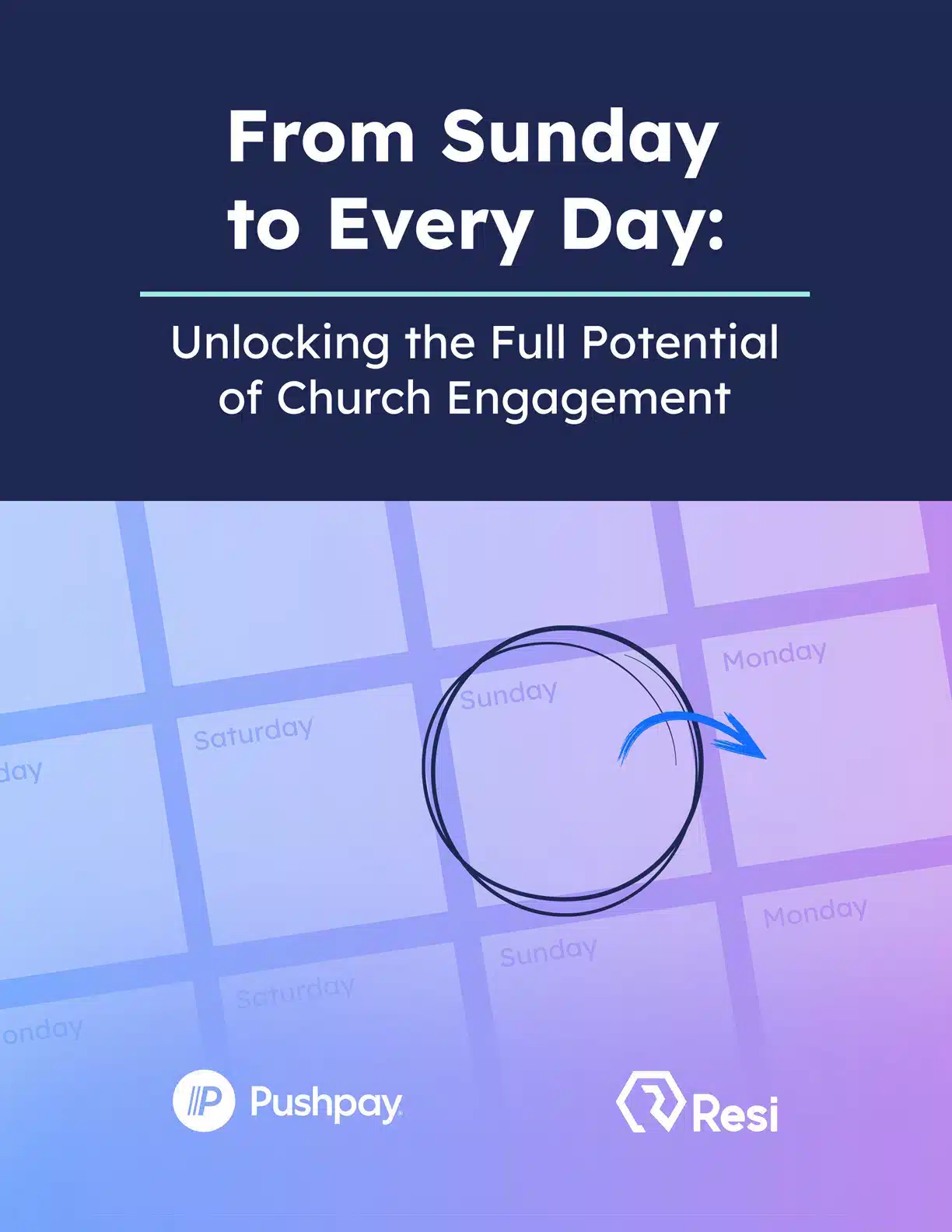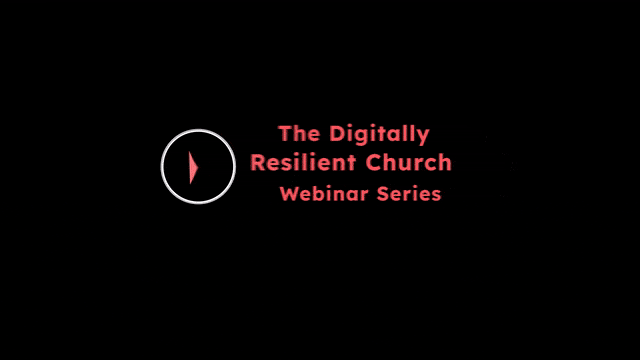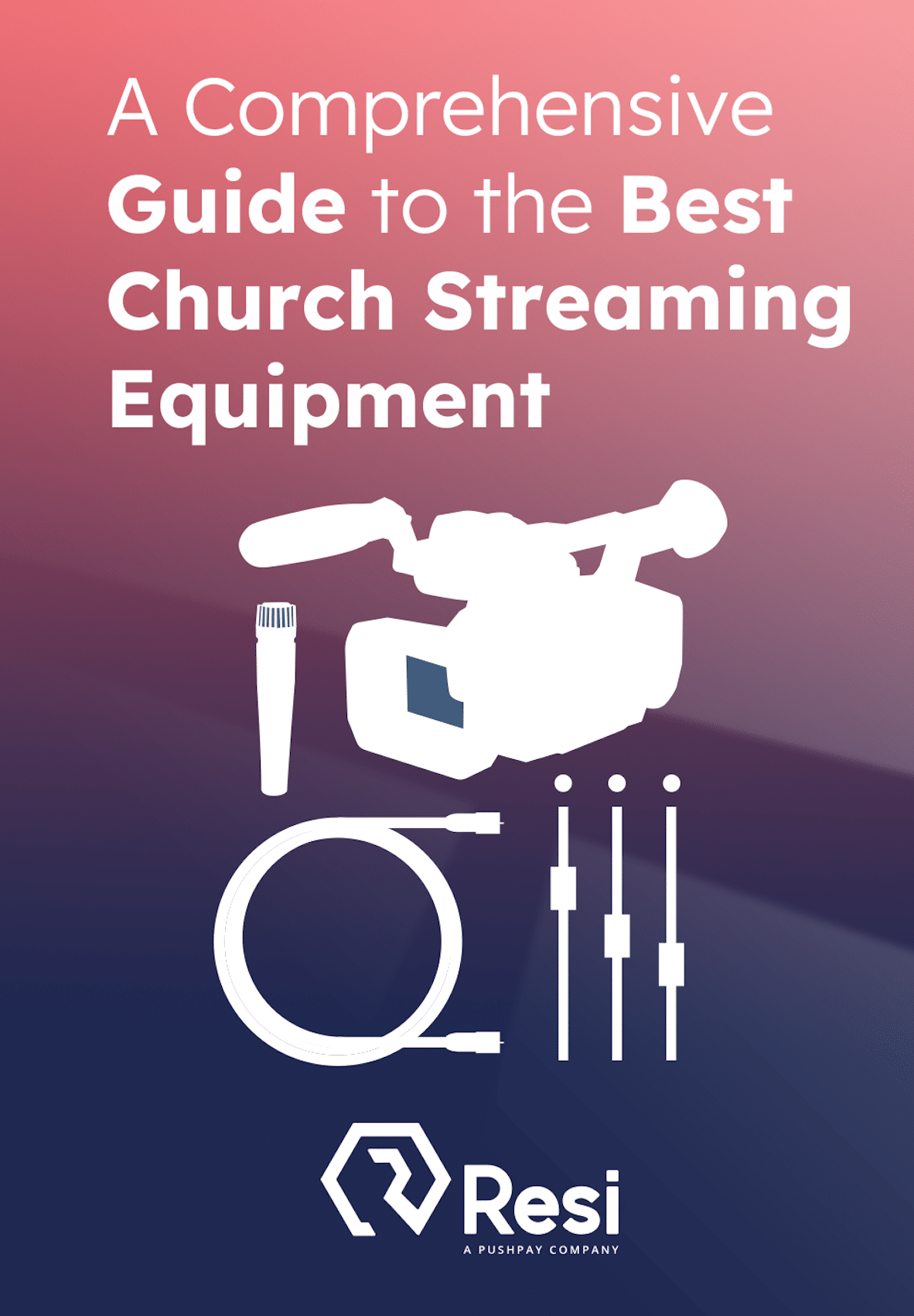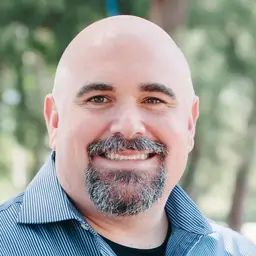
Why should your church utilize technology to build a digital community?
Biblically, the church of Acts met “daily in the temple courts… to break bread from house to house, sharing meals with gladness and sincerity of heart” (Acts 2:46). While we don’t often see daily relationships in physical churches today, digital gets us to the place where we can have daily interactions with people.
We’re not just talking shallow “thumbs up emoji” relationships on social media. Utilizing tools like Slack, Discord, WhatsApp, and even Facebook Groups, I’m suggesting churches like yours can have deep, disciple-making relationships.
Pastor, your digital standard should not be one of collecting followers. The amount of followers your church has on YouTube or Instagram is excellent. And you had thousands of views on that TikTok video. That’s great.
But Jesus didn’t stop at followers. He challenged people to something more profound than a 60-second video. Check out John 6, where Jesus challenged his followers, saying things like “eat my flesh” and “drink my blood,” which was so controversial that it even chased away “many of his disciples [who] turned back and no longer followed him.”
Instead of amassing views and likes, your standard should be impacting lives physically. Expect more from your church than just creating consumers digitally. At the same time, I believe relationships grounded in digital can be so strong that it impacts lives physically.
James 1:22 (paraphrase) reinforces this ideology, “Don’t just be hearers of the word [online] and so deceive yourselves. Do what it says [in the physical world].” Are you utilizing digital to the place where you are getting physical impact? If not, maybe it’s time to take digital more seriously.
Connection, Digital Community & Discipleship
According to Pushpay’s 2024 State of Church Tech Report, 91% of churches like yours are livestreaming! Amazingly, 91% of churches can’t agree on most things, but 91% of them agree that putting their church services online is a good idea. That said, connecting with people through your online church services is not the finish line. It’s the first step.
The next step for your church to embrace is community.
In their recent book, The Other Half of Church, authors Jim Wilder and Michel Hendricks examined the brain science on how people best learn today. They discovered our brains, simply, are quite literally wired to embrace discipleship within a community. This is why it’s so crucial for people to come to your physical church services and get connected into a physical small group. Through these physical communities, churches like yours see life-changing discipleship happening.
Interestingly, digital community has taken leaps and bounds technologically, yet the Church has struggled to adapt.
Churches typically, unfortunately, utilize a Web 1.0 strategy: Using the internet to inform people of church services and invite them to come to a physical building to be discipled. But what if churches like yours adopted a Web 2.0 strategy, where they leaned more into creating and dialoguing with people in digital community and start to embrace the idea of digital discipleship? What if our churches evolved past the idea of just using digital for communications and instead leaned into digital community aimed toward discipleship?
The Evolving Landscape of Church Community
Digitally, we see this: People come to community before they come to Christ. This is the opposite of how people think physically. Physically, there is a much higher level of trust quickly. A first-time physical visitor will drop off their baby in the nursery and complete all necessary paperwork. A first-time online visitor? You’re lucky if you get a name and email address.
From Sunday to Every Day
Download our FREE ebook to find out how your church can measure success in this engagement-centric culture.
Download for free!
Here’s what’s interesting about your church embracing digital community: It’ll complement what you’re doing physically, not compete. Churches embracing digital community are reporting a higher level of discipleship in “hybrid attendees” compared to “physical-only attendees.” And that’s because digital community give visitors a safe space to get to know you before they visit physically. And, missionally, digital community allows your church to reach people your physical location just can’t reach.
Community acts as a buffer to build relationships with people… and, through those relationships, point them to the Gospel, small groups, etc. It’s a way to connect with people to earn their trust to the point that they trust what you say.
Essential Technologies for Enhancing Community
In 2024, people — even committed Christians —aren’t coming to church four weekends a month.
Pastor, you can be alarmed by this. But, honestly, you already knew this.
And this is why 91% of you livestream your services online using equipment like Resi. Many of you also archive your sermons through podcasts, YouTube, mobile apps, etc. You’re trying to get that sermon out to as many people as possible in as many different ways as possible. So, what if you built digital communities into your discipleship pathways, allowing people to process discipleship digitally and physically?
It may not work for everyone, but you’ll find it will work for enough people in your church to make it worthwhile. Churches report that a “hybrid” discipleship process develops a stronger disciple than a physical-only disciple.
In addition, thanks to technology, we can now reach a different type of person digitally— those who may not be as comfortable in a physical setting, especially at first. There’s safety in anonymity, right? People that the physical church has burned will take longer to rebuild that circle of trust. You can use technology like Slack, Discord, WhatsApp, or even Facebook Groups to engage with people in different ways and effectively build relational trust with them.

The Formula to Digital Discipleship
Let’s turn practical here. How can your church capitalize on digital community for discipleship? Let’s walk through a simple framework for churches like yours:
Connection (Engagement) -> Community (Relationship) -> Discipleship (Commitment)
In 2024, every church in America has some level of digital connection, whether it be the 91% of you currently broadcasting services online, connecting with potential visitors through a church website, or sending emails to your member database. Even social media allows your church to connect with people; through engagement, people can respond to your church and hopefully dialogue.
But let’s get down to brass tacks: Can someone build effective, disciple-making relationships via social media or a website? Maybe, but it’s very difficult, and they rarely stick.
Fortunately, there’s a better way.
Factor 1: Connection (Engagement)
Social media “engagement” is a powerful connection tool.
Thumbs-up emojis and comments on posts are powerful ways to get people to listen to you. But don’t stop there.
Digital community is your church’s opportunity to listen to others instead of your church monologuing while others stay silent. Attaining a social media following or building an email database is highly important to digital ministry. But it’s not the finish line. It’s the beginning.
So, be excited about that TikTok video that went viral! Then ask yourself what you’re doing with the newfound attention. Hopefully, you’re driving them into community.
Factor 2: Community (Relationship)
Through our digital connections, we should encourage people to connect within community for deeper relationships. Community is where we build out the circle of trust.
Every church already does this physically. However, some churches are finding it practical to utilize digital community to build relationships and trust with people.
You’ll find it’s much easier to get a digital connection to connect with digital community rather than connect physically. The transparency and anonymity of a digital community is safe for the new person who doesn’t trust you yet.
This is why it’s so important to build relationships and gain trust. In a digital community, it’s better to ask questions than make statements. You build more trust by listening than by talking.
Factor 3: Discipleship (Commitment)
Once we have that relationship and get to where they trust us digitally, we invite them into a disciple-making relationship, either digitally or physically.
What does it usually look like for your church to make a disciple? Oftentimes, churches utilize the same discipleship process digitally as physically, although some will report doing the process quicker as people tend to process things quicker digitally.
So, church, take all your digital connections, all your influence, all your followers, and encourage them to join a digital community where you’ll get to know them and build relationships with them, where you can establish trust within the relationship—leading the relationship to the place where it’s ready for discipleship.
For some great examples of church Discord servers, check out Lux Digital Church as well as Cornerstone VR Church. Acknowledge, up front, that neither of these churches exist in physical space, so all community, relationships, and discipleship has to happen within the context of their Discord server and other cloud services.
So, where is your church stuck in the Connection -> Community -> Discipleship formula? What is your next step, and what obstacles will your church face?







